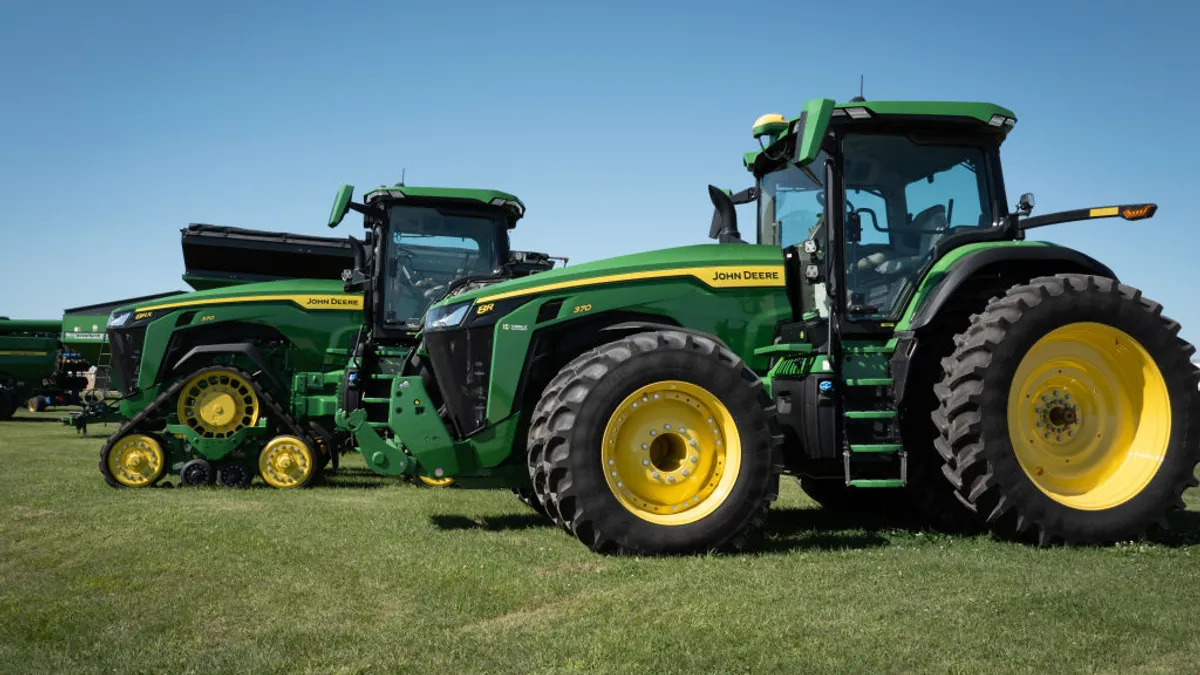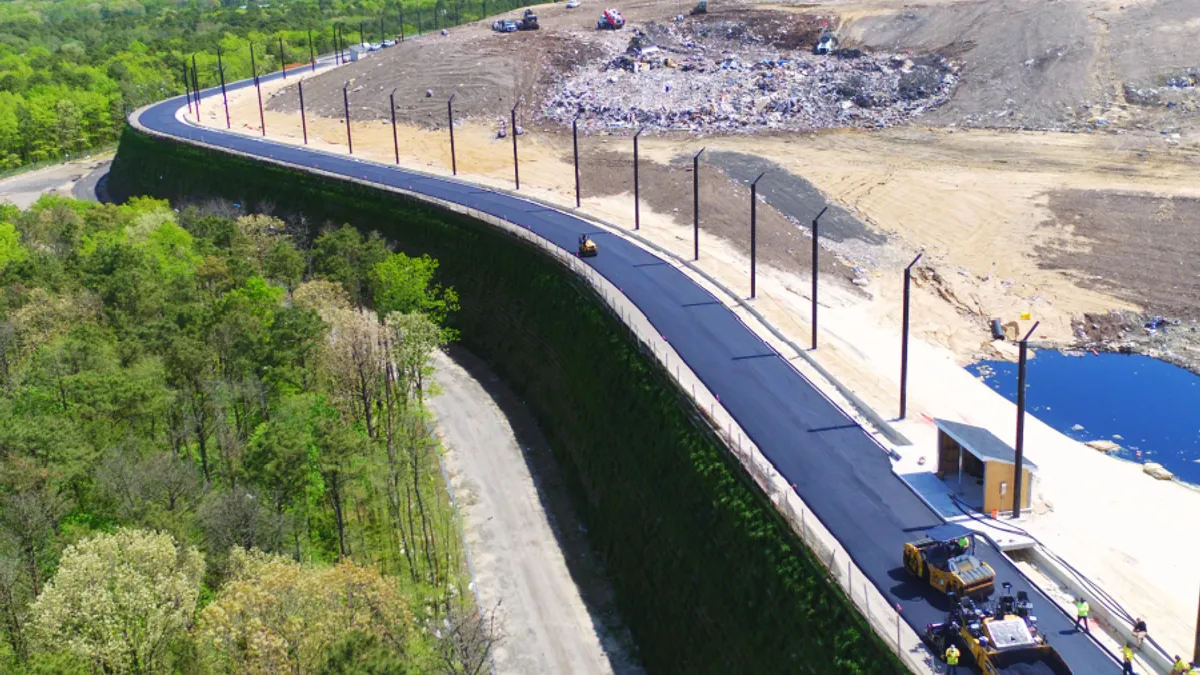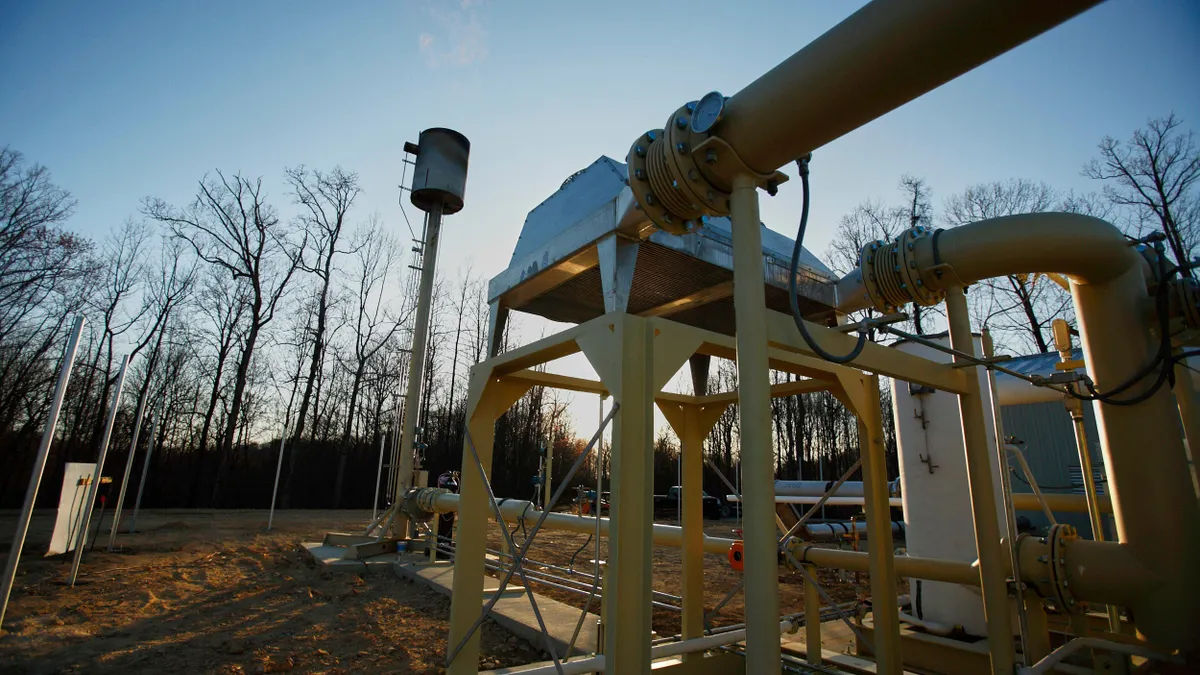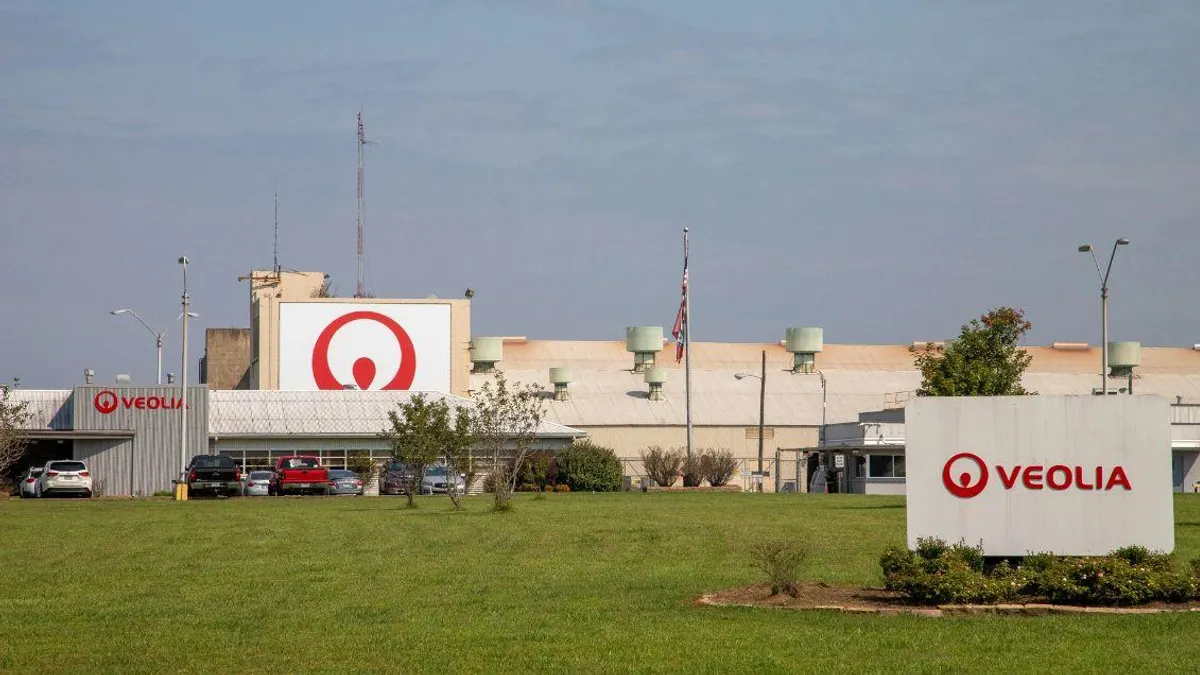Recology is seeing increased uncertainty in the zero-emission vehicle market in the wake of regulatory rollbacks affecting heavy-duty fleets. But the hauler, among California's largest, is still plotting a full transition.
Last month, Recology completed a fleet transition plan with the nonprofit Center for Transportation and the Environment after winning a competitive grant process backed by the C.H. Robinson Foundation, a philanthropic fund tied to the logistics and supply chain company of the same name.
The partners took a close look at Recology's San Francisco fleet, which includes a mix of nearly 600 light, medium and heavy-duty vehicles. It's the largest fleet out of Recology's total operations, which constitutes about 2,600 vehicles.
The plan is vehicle manufacturer agnostic and anticipates the incorporation of both battery electric and fuel cell vehicles. Julia Mangin, Recology's director of sustainability and government affairs, said it helped clarify what opportunities and challenges the company should expect as it embarks on its transition.
"It demonstrated it's certainly possible, but it's going to take a lot of coordination and it's not going to be inexpensive to do it," Mangin said. "We're hoping that further innovation helps with a lot of those challenges."
Recology has historically been on the front line of companies looking to move away from more carbon-intensive fleets. The company achieved its goal to power 90% of its entire fleet with renewable or alternative fuels in 2022, and now has a goal to up that percentage to 95% by 2028.
That progress largely came through the use of renewable diesel and renewable natural gas. While Recology has piloted multiple battery-electric vehicles and today operates a few models, their deployment has been limited to date.
That’s in part due to pared back regulatory efforts to require a transition. California’s Advanced Clean Fleets regulation, which initially set hard deadlines by which many fleet operators in the state would have needed to transition to zero-emission vehicles, was curtailed by California’s Air Resources Board after the election of President Donald Trump in 2024. Trump’s administration has also worked to roll back requirements for vehicle manufacturers to produce zero-emission trucks this year.
Against the backdrop of those changes, CTE helped Recology better understand the availability of battery-electric and fuel cell vehicles to replace the range of models in its existing fleet, Mangin said. The center also provided a look at fueling infrastructure and other market developments.
The partners modeled what it would take to fully transition the fleet to zero-emission vehicles by 2042, a deadline initially set by the Advanced Clean Fleets regulation. The transition plan calls for Recology to replace its smaller, lighter duty vehicles with battery electric models first before mixing in battery electric and fuel cell models for the hauler's heavier vehicles over time. Mangin said Recology would replace vehicles on a rolling basis as they reached the end of their useful life, which is usually about 10 years.
The plan estimates Recology would need three megawatts of charging power alone for its San Francisco fleet, a significant amount of power at a time when other electrification needs are also on the rise. Mangin said the company has begun engaging with utilities about adding capacity, but noted they can sometimes adopt a "get in line" mentality.
"A lot of it is dependent on how tapped the grid already is in that area," Mangin said. "We’re trying to get ahead of it."
Waste haulers and vehicle manufacturers alike have been reluctant to support strict regulations requiring zero emission vehicle adoption. But Mangin said those parties will have to work together alongside utilities in order to facilitate a complete transition.
The rollback of Advanced Clean Fleets and less stringent but still ambitious federal programs have made the development of suitable zero-emission vehicles murkier, she said.
"If manufacturers aren't pushing to meet those requirements, there is concern that market availability isn't going to progress as quickly as we'd like and as we'd hope," Mangin said.
She said Recology wanted to remain aligned with "the spirit of and intent of those regulations," even if they are no longer in effect. Removing their mandate may also give Recology more flexibility to align with manufacturers. Instead of scrambling to meet a deadline, the hauler could be driven more by market development, vehicle replacement schedules and utility and infrastructure deployment, Mangin said.
Prospects for fuel cell vehicles also remain uncertain. Recology was the first waste company to pilot a hydrogen fuel cell refuse vehicle developed by Hyzon in partnership with New Way Trucks. But Hyzon announced it would shutter months after the pilot, and received shareholder approval to liquidate earlier this year.
Mangin said she remains hopeful that another company can step into the void left by Hyzon's collapse. But the manufacturer's troubles are emblematic of the central issue with a transition — the heavy-duty vehicles that can offer a 1-to-1 replacement for Recology's existing fleet have not arrived, and may not for another five years or more, Recology and CTE found.
"At the end of the day, we can only make a transition happen if there are vehicles out there that meet our needs," Mangin said. "It just shows that a lot of things have to fall into place for a transition of this size to be successful."
Editor’s note: This story has been updated with Mangin’s specific role.





















